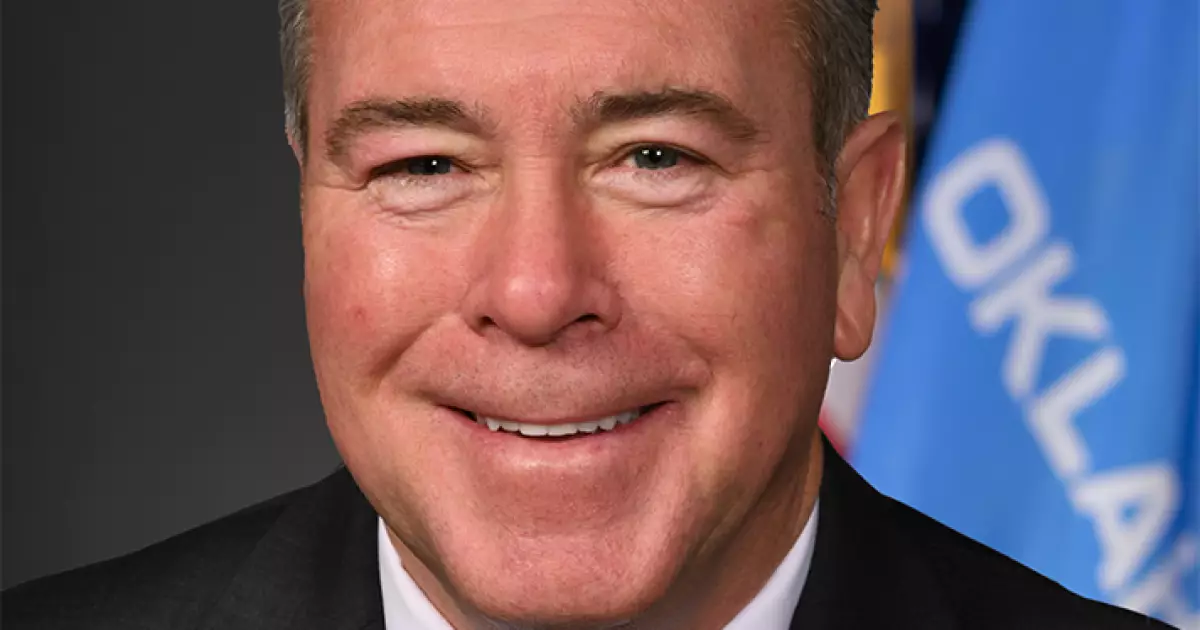The political arena in Oklahoma has taken a turn that’s as dramatic as it is disheartening. A feud has erupted between two high-profile Republican officials: State Treasurer Todd Russ and Attorney General Gentner Drummond. This conflict, which ignited over the state’s controversial social and environmental governance (ESG) laws, exemplifies a disturbing trend: the deterioration of coherent governance in favor of personal vendettas and party politics. The feud has emerged not just from disagreements over policy but from a fundamental struggle over power and constitutional authority, leaving Oklahomans to question the integrity and purpose of their elected officials.
Constitutional Breach or Political Theatre?
In a striking move, Treasurer Russ accused Drummond of “crossing constitutional lanes of government,” suggesting that the attorney general’s actions betray an alarming ambition to centralize power. This allegation hits harder than mere political jargon; it articulates a concern that Drummond, a candidate for governor, is exploiting his position to overreach and expand governmental control in ways that violate the established authorities delegated to the treasurer. His behavior raises critical questions: Are we witnessing a breakdown of civil discourse and respect for institutional roles in Oklahoma? Or is this simply another example of political posturing, a manufactured crisis that serves the ambitions of the individuals involved more than it serves the people of Oklahoma?
Protecting Oklahoma or Serving Personal Interests?
Drummond defended his actions assertively, claiming his obligations to uphold Oklahoma’s laws relating to procurement and protect its interests. However, one cannot help but notice the conflict of interests stemming from his close ties with financial institutions like BlackRock, a firm that has steadily become a target for backlash among conservative circles. The crux of the issue revolves around Drummond’s interventions, which were ostensibly designed to protect the oil and gas industry from what he characterized as unwarranted discrimination by left-leaning financial entities. This discourse positions Drummond as a defender of traditional energy, but the underlying motivations seem murky. Is his commitment genuine, or is he leveraging the energy sector’s plight for political gain? The lack of transparency in their dealings raises deep ethical concerns.
Legal Maneuvering and Political Consequences
When the Oklahoma Supreme Court issued a permanent injunction against the Energy Discrimination Elimination Act of 2022, the stakes skyrocketed. Drummond’s subsequent appeal reflects a commitment to this contentious legislation, but skepticism remains about whether this is genuinely about protecting Oklahoma’s interests or merely a political game. The legislation has faced backlash from various quarters, primarily because it blacklists firms like BlackRock, which some view as detrimental, particularly in a state reliant on economic cooperation with diverse financial institutions. The state treasurer’s assertion that the attorney general initially refused to defend this law juxtaposes the aggressive stances taken by each party, amplifying the discord and casting a shadow over their integrity.
Militancy vs. Governance
As the rift deepens, it is alarming to see the extent to which personal vendettas overshadow meaningful governance. The lack of collaboration between the treasurer and the attorney general mirrors a troubling trend not only in Oklahoma but across the nation: politicians prioritize rhetorical flourish and personal grievances over substantive policymaking. The failed legislation which sought to transfer the enforcement of the ESG laws from the treasurer to the attorney general is a glaring symptom of a political game that reflects poorly on the motivations that drive policymakers today. Rather than working together to empower Oklahomans, our leaders seem trapped in a cycle of retaliatory actions devoid of any strategic foresight.
A State at a Crossroads
Ultimately, what emerges from this tumultuous power struggle is a state trying to navigate an uncertain political landscape while mired in the ambitions and conflicts of its leaders. Oklahoma stands not just as a backdrop for an ongoing political feud but also as a prime example of how infighting among Republican leaders can trigger wider implications for governance, credibility, and, ultimately, the welfare of its residents. The future of effective policy-making and responsible administration hangs in the balance, and if these two officials cannot find common ground or focus on the real issues facing their constituents, we may see the collapse of essential governance structures that are supposed to serve the public good.


Leave a Reply